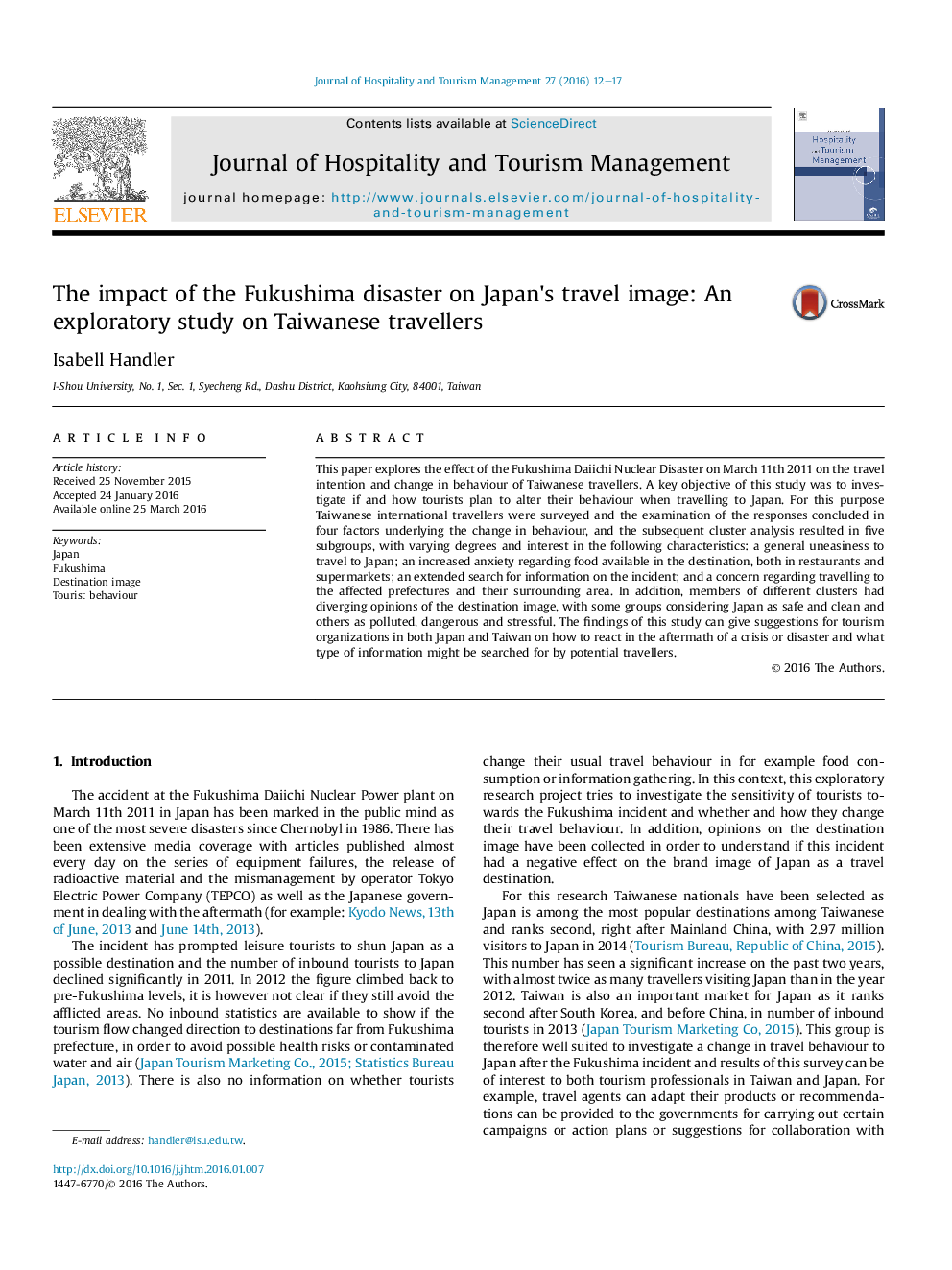| Article ID | Journal | Published Year | Pages | File Type |
|---|---|---|---|---|
| 1011406 | Journal of Hospitality and Tourism Management | 2016 | 6 Pages |
This paper explores the effect of the Fukushima Daiichi Nuclear Disaster on March 11th 2011 on the travel intention and change in behaviour of Taiwanese travellers. A key objective of this study was to investigate if and how tourists plan to alter their behaviour when travelling to Japan. For this purpose Taiwanese international travellers were surveyed and the examination of the responses concluded in four factors underlying the change in behaviour, and the subsequent cluster analysis resulted in five subgroups, with varying degrees and interest in the following characteristics: a general uneasiness to travel to Japan; an increased anxiety regarding food available in the destination, both in restaurants and supermarkets; an extended search for information on the incident; and a concern regarding travelling to the affected prefectures and their surrounding area. In addition, members of different clusters had diverging opinions of the destination image, with some groups considering Japan as safe and clean and others as polluted, dangerous and stressful. The findings of this study can give suggestions for tourism organizations in both Japan and Taiwan on how to react in the aftermath of a crisis or disaster and what type of information might be searched for by potential travellers.
